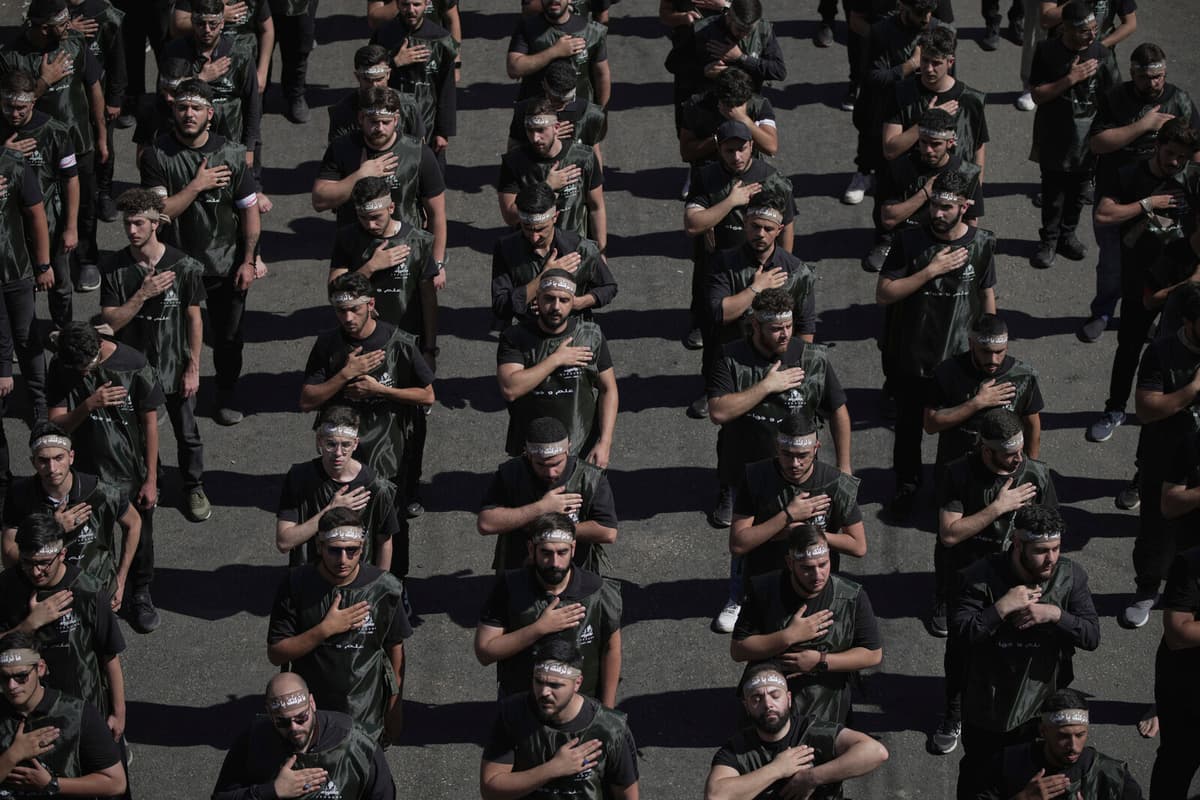The Lebanese army has been tasked by the government to develop a plan to establish a state monopoly on weapons before the end of the year – in other words, to disarm the Iran-backed Shia militia. The message comes after pressure from the US, through envoy Tom Barack.
He told the Lebanese government that it is an Israeli ultimatum. Either you disarm Hizbollah or Israel will take care of the problem, says Hilal Khashan, professor of political science at the American University in Beirut, who has written several books on Hizbollah's position in Lebanese society.
50,000 armed soldiers
Although Hizbollah has been weakened after intense Israeli attacks last year. Not least after the massive attack with exploding drones and air strikes that, among other things, killed the group's leader Hassan Nasrallah. But the group is one of the strongest in the region – and the world – when it comes to military means. In 2024, the US intelligence agency CIA estimated that Hizbollah had around 50,000 armed soldiers and the largest arsenal of weapons in the world, excluding government forces.
And Hizbollah itself has no interest in laying down its arms. In a statement on Wednesday, the group said that the decision "fully serves Israel's interests" and that it will treat it "as if it did not exist".
Politically unstable
Hilal Khashan does not believe that the Lebanese army will take up arms to get Hizbollah to lay down its arms.
The army will not fight against a Lebanese sect, it would only lead to the army collapsing and that in turn could lead to civil war, he says.
In other words, they (the Lebanese army) will deal with Hizbollah's remnants when the Israelis have taken care of the matter.
Khashan believes that it is important to disarm Hizbollah in order to save Lebanon from the financial crisis and for the country to be rebuilt.
Otherwise, Lebanon will face a worse economic and security situation, he says, but at the same time emphasizes that disarming Hizbollah will not make the country politically stable.
Lebanon will always be politically unstable.
An Islamist movement, created in the early 1980s as a reaction to a conflict situation that is very similar to today's.
The Palestinian Liberation Organization (PLO) had used southern Lebanon as a base for attacks on northern Israel, which led Israel to invade in 1982. Inspired by the Islamist revolution in Iran a few years earlier, Lebanese Islamists formed the Shia movement Hizbollah ("God's party"), a name chosen by the Iranian leader Khomeini.
A stated main goal has been to expel all "colonialists". In practice, this has meant that much of the armed struggle has been directed against Israel – seen as the representative of the Western world in the Middle East.
Hizbollah has been a political party in Lebanon since 1982 and functions as "a state within a state", with a military power at least as large as the country's army and a strong role in politics and social life.
The Iran-backed movement has been completely terrorist-listed by several countries, while others have chosen to only terrorist-list its armed branch.






